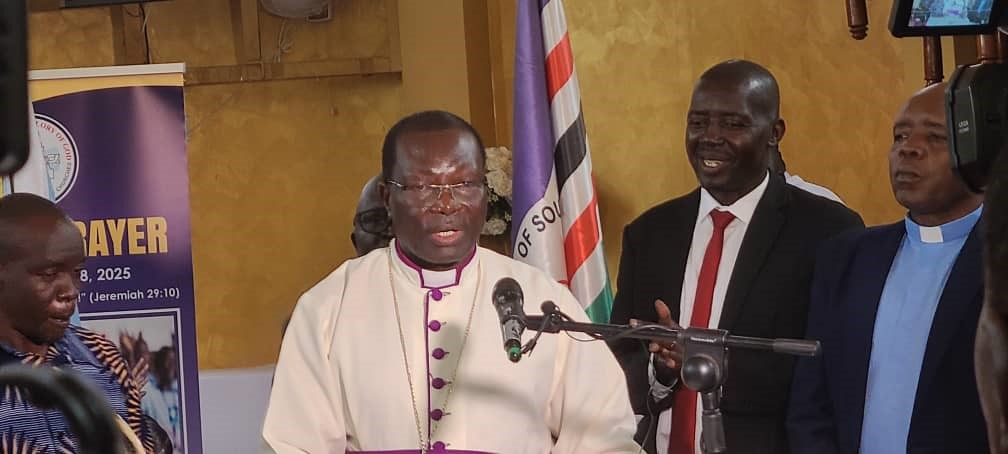As South Sudan marks its 14th year of independence, church leaders have issued a heartfelt appeal to political leaders, urging them to rise above personal ambitions and work together to address the urgent challenges facing the nation. Their call comes amid a worsening economic crisis, persistent insecurity, and growing despair among ordinary citizens.
The South Sudan Council of Churches, a long-standing moral voice and unifying force in the country, expressed deep concern over the state of the nation. The heads of the churches highlighted the collapse of the economy, which has left many citizens living in desperation, and pointed to the suffering of communities affected by conflict, flooding, and displacement.
The Most Rev Dr Justin Badi Arama, Chair of the South Sudan Council of Churches and Primate of the Episcopal Church of South Sudan, called on the nation to reflect on the sacrifices made during the long struggle for liberation. He urged citizens to use this anniversary as a moment to recommit to the values of unity, reconciliation, and peace.
“This 14th anniversary should be a time to embrace the spirit of reconciliation, unity, and true peace among the South Sudanese,” he said. “Let us remember that our freedom came at a great cost, and that we have a shared responsibility to protect what was achieved through blood and sacrifice.”
He stressed that peace will only be realized through inclusive and meaningful dialogue that gives space to every voice, including those in opposition. True healing and progress, he said, must be rooted in listening, humility, and shared purpose.
The Council has set aside seventy days of prayer and fasting, from June 10 to August 18, in recognition of seventy years of painful struggle, persistent hope, and the long road to freedom. Bishop Badi explained that the church’s desire is for a nation where justice triumphs over oppression, where liberty and prosperity are shared, where the rule of law is upheld, and where unity guides every step forward.
He reminded leaders that independence was a collective achievement born of unity and faith. However, he also warned that political divisions continue to serve the interests of a few while millions remain marginalized, including those in flood-affected areas and internally displaced persons in camps across the country.
The church leaders called on politicians to place dialogue and inclusivity at the heart of the national agenda. They also extended gratitude to humanitarian partners and friends of South Sudan for their enduring support during both the liberation war and the more recent waves of conflict.
Bishop Badi praised the commitment of partners who have continued to prioritize human dignity and welfare, even in the most difficult circumstances. “As spiritual leaders, we appeal to you not to abandon the people of South Sudan,” he said. “There is still hope. Peace can be realized with your continued support.” By Philip Basa, The City Review






